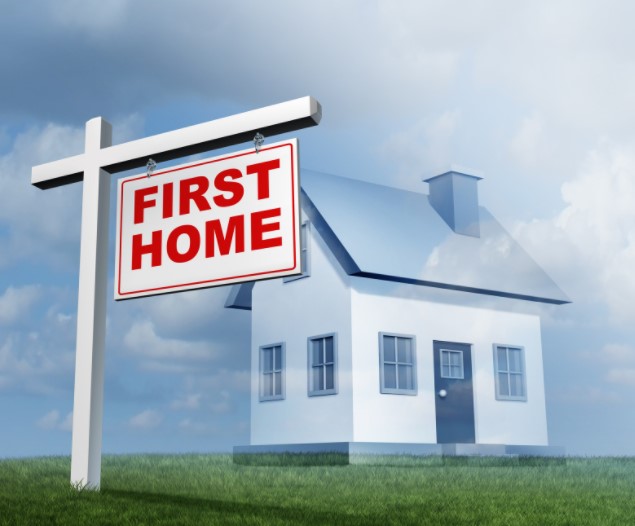Buying a home is one of the most important decisions in your life. It will shape your finances, lifestyle, and relationships for years to come. But there are many hidden costs when buying a new home that can range from the initial down payment to movers, repairs, and even landscaping. It’s essential to be aware of these costs before you buy, so you’re not caught off guard and end up spending more than you expected.
How to prepare for buying your first home
There are many things to consider when preparing to buy a home. One of the most significant is to make sure you have enough money saved up for the down payment. You’ll also need to budget for moving costs, repairs, and landscaping. It’s important to be aware of all the expenses involved in buying a home, so you’re not caught off guard and end up spending more than you expected.
The initial down payment is often the most difficult expense to save for. Depending on the type of mortgage you get, you may need to come up with as much as 20% of the purchase price of the home. If you’re buying a £200,000 home, that’s a down payment of £40,000. For many people, this is a significant chunk of change that takes years to save.
The hidden costs of buying your first home
When you’re buying a new home, there are many hidden costs that you need to be aware of. It’s significant to be aware of these costs before you buy, so you’re not caught off guard and end up spending more than you expected.
Some hidden costs of buying a home include:
- The down payment: This is typically the largest expense when buying a home, and can range from 5% to 20% of the purchase price. If you’re unable to make a large down payment, you may have to pay for mortgage insurance, which can add hundreds of dollars to your monthly payments.
- Movers: If you’re moving from one home to another, you’ll likely need to hire movers. This can be expensive, especially if you have a large home or a lot of belongings.
- Repairs: It’s not unusual for homes to require repairs shortly after purchase. A drainage company in London (or wherever you may be buying) can be costly, and the nature of these domestic repairs can range from small to expensive, so it’s important to budget for them.
- Landscaping: Many homeowners choose to update their landscaping when they move into a new home. This can be costly, especially if you hire a professional.
While these are some of the most common hidden costs of buying a home, there are many others that you may need to budget for as well. It’s critical to do your research and speak with an estate agent to get an idea of all the costs you’ll need to account for. This way, you can be prepared and avoid any unexpected expenses.
How to budget for buying your first home
When you’re buying a new home, it’s significant to budget for all the associated costs. Here are a few tips on how to budget for these expenses:
1. Make a list of all the costs associated with buying a home. This includes the down payment, closing costs, moving expenses, and repairs.
2. Estimate how much each of these costs will be. The down payment and closing costs are usually easy to estimate, but it can be harder to estimate the cost of repairs or moving expenses.
3. Create a budget and make sure you have enough money saved up to cover all of these costs.
4. Ask your lender about financing options. You may be able to get a loan for some or all of the costs associated with buying a home.
5. Don’t forget about ongoing expenses. Your monthly mortgage payment is only one part of the cost of owning a home. You’ll also need to budget for things like property taxes, insurance, and repairs.
Buying a home is one of the most important investments that you will ever make in your life. The right choice can mean years of happiness, but the wrong choice can mean years of regret.
How to make an offer on your house
Buying a home is one of the biggest purchases you can make in your lifetime. With so many costs associated with homeownership, it’s important to be prepared for what may lie ahead. One of the first considerations when buying a new home is how much money you have available for closing costs and other expenses that come with purchasing property. The initial down payment is typically just the beginning.
When you make an offer on a house, there are a few things you’ll need to include. The offer should state the price you’re willing to pay, what type of financing you’re using, and how much money you have for closing costs. It’s also significant to include your contact information, as the seller will likely want to get in touch with you to discuss the offer.
The closing process and what to expect
When you make an offer on a house, the closing process will begin. This is when all the details of the sale are finalized, and it can take anywhere from 30 to 60 days to complete. During this time, you’ll need to provide documents to your lender, such as payslips, P60s, and bank statements. The lender will also order a home appraisal to ensure that the property is worth the price you’re paying.
Once all the paperwork is in order, you’ll schedule a closing date. This is when the sale will be finalized, and you’ll officially become the homeowner. On this day, you’ll also need to pay closing costs, which typically range from 2% to 5% of the purchase price.
Good Luck!
When you’re buying a new home, it’s important to be aware of all the hidden costs that come with it. These costs can range from the initial down payment to repairs and landscaping. By being prepared for these expenses, you can avoid any surprises and stay within your budget. Let us know if there are any other topics you’d like us to discuss!

